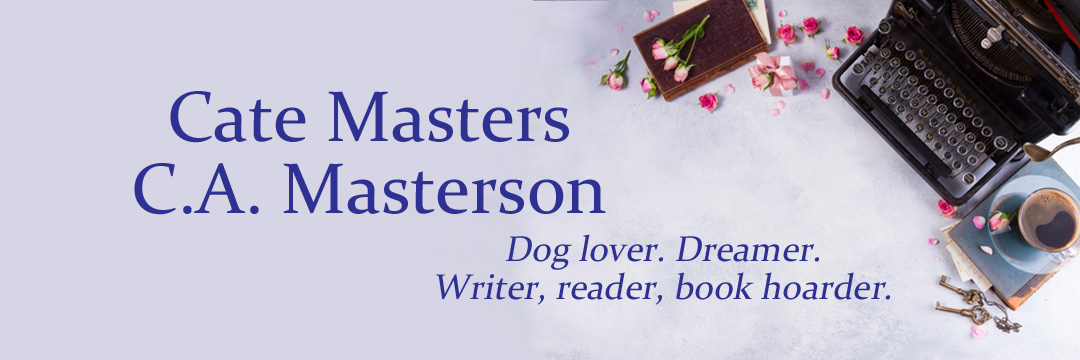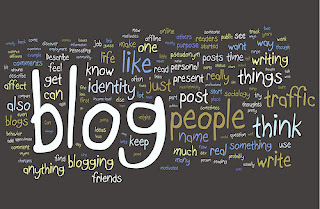Below is the presentation I made at The Midtown Scholar's Second Annual Book Festival in Harrisburg on Nov. 12, 2011. As I promised at the event, I added more information regarding blogging as well: sites to find blogging tips, unwritten rules of blogging, the benefits of blogging, and how to gain followers.
Hello! I’m Cate Masters.
Thanks to the Midtown Scholar for putting together this very cool event.
I’m a multipublished author of paranormal/fantasy, contemporary, historical, speculative, mainstream, sometimes mashed with romance, sometimes not.
Multipublished simply means more than one publisher has released my work – it’s actually up to about seven publishers now, although I’ve taken back rights to some stories and self-published them this year.
Currently all my publishers are online publishers – their main product is ebooks. Some also make Print On Demand (or POD) versions available, but ebooks are their focus.
Until a few years ago, I’d never heard of online publishers. I’d been writing for decades, querying agents, and had a few nibbles. I queried some publishers directly, but generally they prefer you have an agent. And some of my short stories were published by literary magazines or web zines.
Then one of my critique partners encouraged me to submit to The Wild Rose Press. I began researching the submission guidelines, as any writer should do before querying, and found a wide range of publishers. The Wild Rose Press is a romance publisher, but many of my stories were straight paranormal, contemporary, speculative or mainstream, and I found a few publishers who accepted those. And within these past three years, have had 27 stories accepted for publication.
Ebooks are huge business these days. They took the New York publishers by surprise – basically yanked the rug right from under them. The entire industry is in complete flux. How will it all shake out? Many people speculate about it, but no one really knows.
What effect have ebooks had?
Let’s look at the statistics. A few years ago, the big print publishers scoffed at ebooks, which represented about three percent of the market, at that time.
One of the contributing factors to their success was the economy, which basically tanked. Ebook sales skyrocketed.
Just this past July, Publishers Weeklyreported that ebook sales had doubled. That was the headline, actually – then the article went on to say that, and I quote:
“ebook sales had their smallest increase of the year in July.”
So sales doubled, but it represented the smallest sales increase all year.
Here’s what the Publishers Weekly article then said:
“E-book sales from 17 reporting publishers rose 105.3% in the month, to $82.6 million.
For the seven month period, e-book sales were up 152.8%, to $560.5 million.”
Needless to say, the New York publishers aren’t laughing anymore. In fact, they’re more than a bit frightened. And of course, everyone wants a piece of that pie.
The print publishers are shifting toward electronic releases, though there’s a huge controversy about pricing – no one wants to pay ten dollars for an ebook. Can’t blame them, when there are so many established online publishers selling full-length novels for usually about half that.
While unscrupulous publishers have always existed – and that’s where you really have to do your research up front, and check sites like Preditor & Editor – one of the unfortunate results of this shift is that new scams pop up all the time.
Self-publishing has become more popular. Some authors have found incredible success with self-publishing – Amanda Hocking and J.A. Konrath have made millions. Literally. Other popular authors have broken away from the big publishers to strike out on their own – J.K. Rowling’s a prime example.
I’ve published a few stories on my own, mainly as an experiment. Some have sold pretty well, considering I really don’t market them.
Online publishers are sometimes considered substandard, and some people mistakenly assume all are the same.
Not so. Just as there are some terrible print books out there – you know it’s true – there are, admittedly, some terrible ebooks.
Most online publishers, however, have very strict standards. Their submission guidelines are very clear about what they’ll accept, or not accept, and their editors see the stories through several rounds of revisions.
Again, not all online publishers are on the same level, but many publish high quality stories.
One of the things I love best about ebooks is the flexibility regarding length. My stories range from short stories to midlength to full-length novels. That’s an advantage over the print publishers. And many of the online publishers will send full-length stories to print on demand, if you’re set on having a print edition.
Another advantage – you don’t need an agent. In fact, I have no idea what benefit an agent might be.
While there are no advances from online publishers when they accept a story, there is a huge advantage over print publishers regarding royalties. Royalties from online publishers range from 20 percent to 45 percent for ebooks, versus about 7 to 10 percent for print.
One of the downsides to having an online publisher is that marketing is squarely on the author’s shoulders. There’s no huge PR machine to send authors on nationwide book signing tours. But the nice thing is, authors can do low-cost promotions such as online chats, blog tours, Facebook and Twitter.
Regardless of which type of publisher an author has, print or online, they still have to establish a social networking platform. When you submit a query to a publisher, many these days will ask you to also submit a marketing plan detailing how you’ll promote the story if accepted.
A key component of the social networking platform is blogging.
I’m just going to cover the basics.
Authors should begin blogging before they’re even published. One blog is absolutely essential. Two is just good business sense.
For me, it’s three blogs. My own: catemasters.blogspot.com, which is solely my own.
I set up a group blog for local writers called The Susquehanna Writers, at: thesusquehannawriters.blogspot.com
And I helped set up another group blog called Paranormalists, which you can find at: paranormalists.blogspot.com
You might have noticed I like Blogger.
There are other sites where you can set up blogs
WordPress (though you need to purchase hosting space for that)
Typepad
SnapPages has a free version which includes a basic blog
There are more, I’m sure, but Blogger, to me, is great.
It’s free – no matter how much space you use.
It’s easy to set up, and you can tweak their formats to personalize it.
It’s connected to:
Googlemail – which makes it easy to leave comments
Google Picasa – through which you can set up online photo albums and add book covers, etc, to rotate on display, as we have on The Susquehanna Writers
Dashboard – where you can see in one screen all the Blogger sites you’re able to post to
It’s connected to YouTube, so when you log into Google, you’re automatically logged into YouTube
Google Alerts – these aren’t very reliable, but you can set it up to search the web for any mention of whatever keywords you enter
There are a few other options I don’t use
Again, those are just the basics.
I actually eliminated my web site earlier this year, and expanded my blog so that it functions essentially the same as my web site. I kept my domain name and simply pointed it back to my blog. You always want to own your domain name, or else someone else will purchase it and attempt to sell it back to you for ten times its cost.
I have a very active blog. Oftentimes, I’ll post every day – this, despite announcing at the beginning of the year that I felt I needed to slow down after a manic couple of years.
Didn’t happen. This year was much busier than I anticipated. Some days, I actually had more than one post. I try not to do that often.
If you start a blog, it’s not necessary to post every day. It’s helpful if you establish a schedule so your followers know what to expect. If the content isn’t updated on a regular basis, your blog might still show 101 followers, but visits may drop to almost nothing. If you give them no reason to return, they simply won’t.
There are no rules to blogging. Officially, anyway. There are lots of unwritten rules.
Such as:
- Don’t use your blog as a venue to rant
- Don’t overwhelm your followers with depressing personal news
- Don’t make it all about you and your books – if all you do is market, you’ll lose people fast
Check out this great post at The Story Siren on other potential irritants to visitors.
If you need tips on how to get started blogging, there are plenty of sites to help you. Here are just a few:
kisswebmaster.com/top-100-blogging-tips-all-time/
If you enter the search terms “blogging tips” into Google or Yahoo, you’ll find a much longer list of sites.
Why blog? Well, if I didn’t convince you about its benefits, maybe Seth Godin can:
Here’s another video regardin social networking’s value to business:
Once you launch a blog, you may wonder how to get followers. There are several ways. First, make sure you have interesting content to draw followers. *grins*
If you want to increase your traffic fast, try joining in a blog hop. Bloggers set up hops all the time, and it’s just a matter of signing up and joining in.
Here are a few I’ve participated in, or which have caught my interest:
Six Sentence Sunday http://www.sixsunday.com/
Teaser Tuesdays: http://shouldbereading.wordpress.com/
Wordless Wednesdays http://www.wordlesswednesday.com/newhome/
Another way to obtain followers is to hold giveaways on your blog, either on your own or through an organized giveaway, and make one of the requirements that entrants become a follower. Once you become part of the blogging community, you’ll become aware of such organized giveaways through others’ blog posts. Another good resource is Goodreads, where friends will often alert you. One of the most active I’ve come across is through I Am A Reader, Not A Writer.
I hope some of this has been helpful to you! Thanks again to Catherine Lawrence of The Midtown Scholar for organizing the Second Annual Harrisburg Book Festival, and to all those who attended.


